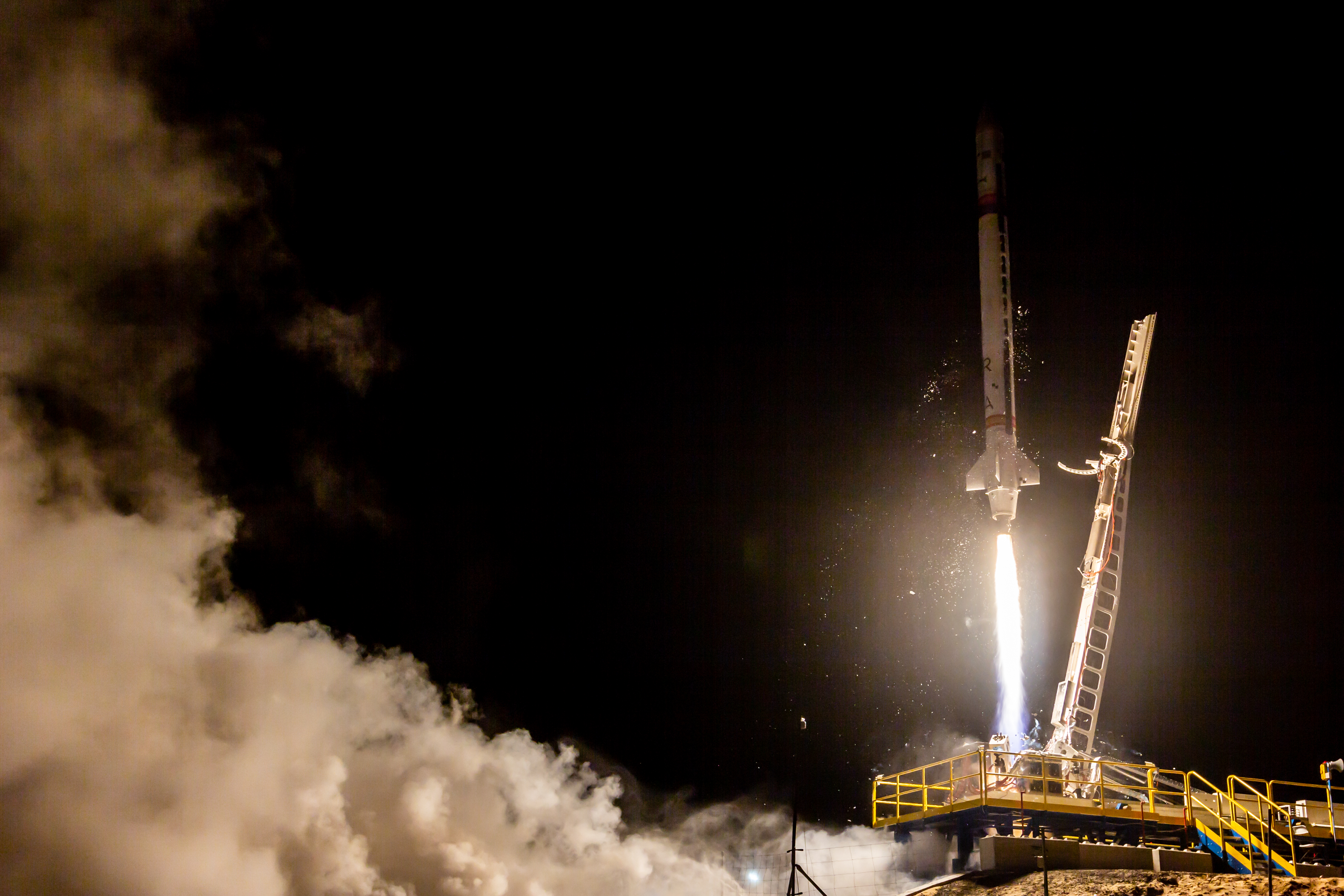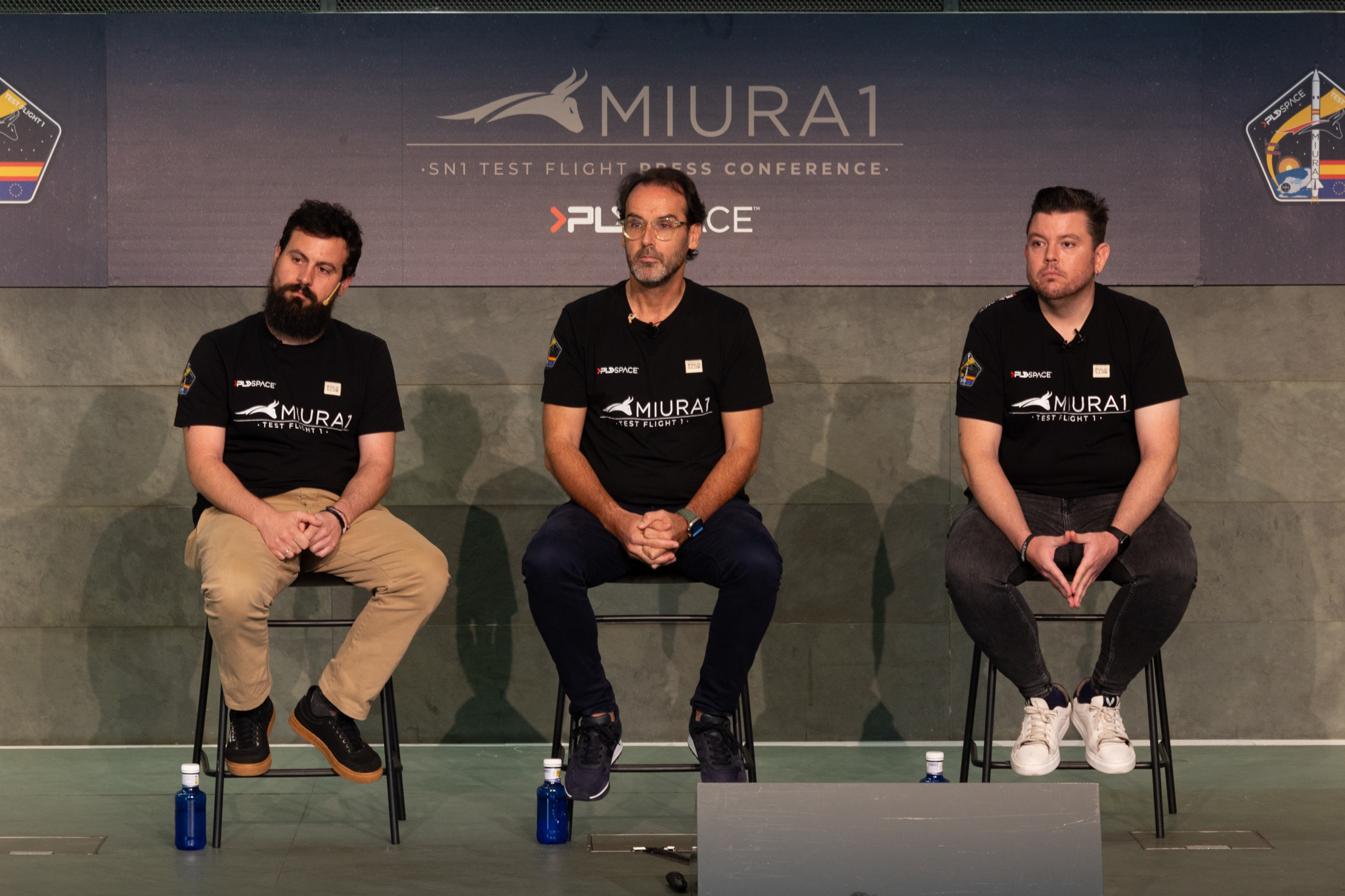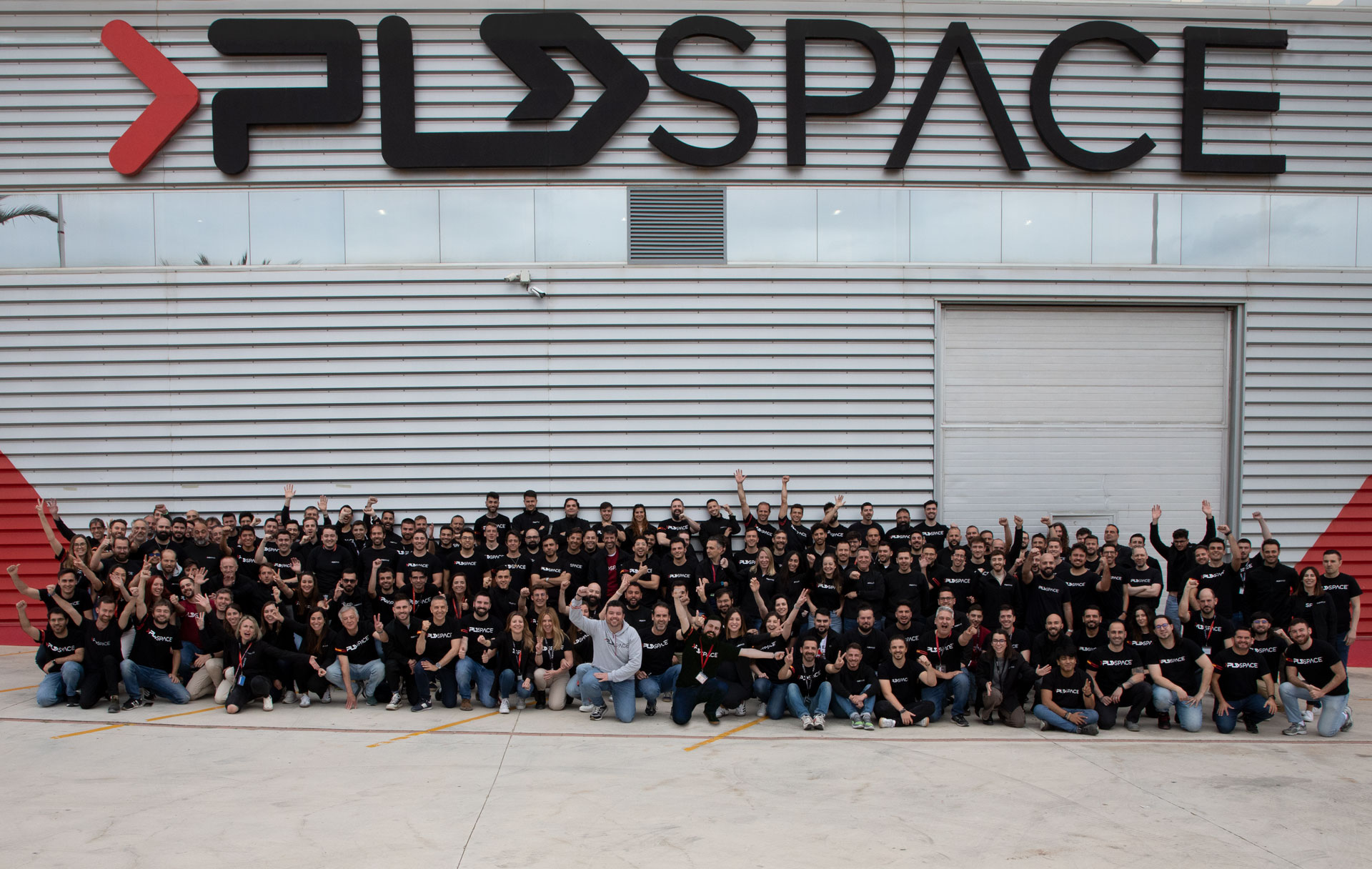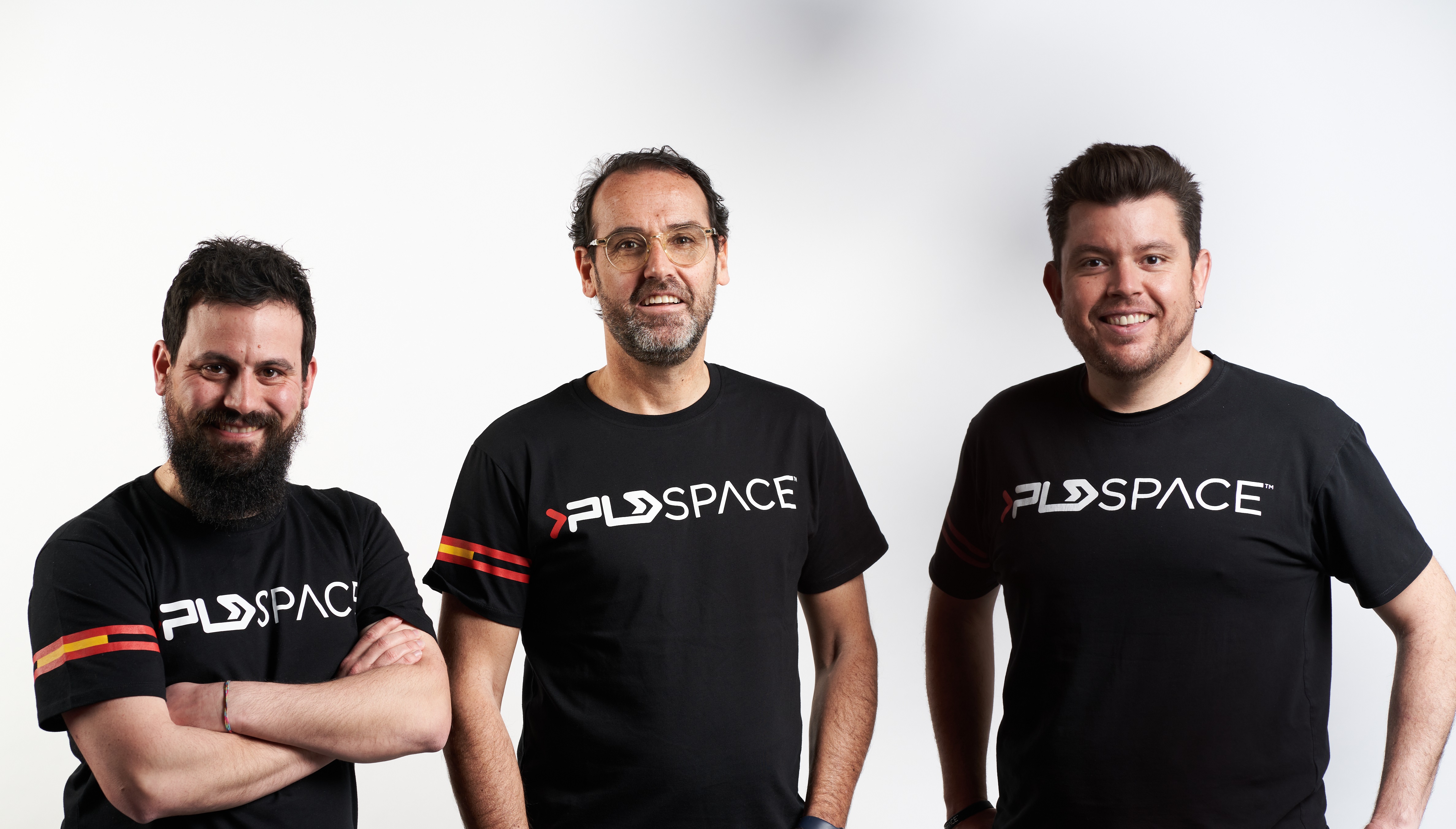- The excellent results of the MIURA 1 test flight provide the Spanish company with "complete technological know-how" in space rocket development.
- From MIURA 1 to MIURA 5 more than a thousand points of improvement of subsystems have been compiled, accelerating the development of the orbital vehicle, and reducing its technological risk.
- The MIURA 5 value proposition has generated 320 million euros worth of commercial interest since January.
Madrid, 20th October 2023. The analysis of the data collected by the Spanish company PLD Space after the launch of their MIURA 1 rocket shows that the mission has been "a complete success". 100% of the main objectives have been achieved and all the technologies developed by the company have been validated in flight. This is a milestone that positions PLD Space as the only European private company with launch capability in Europe today.
"The success rate of a first launch in the space industry is only 45%," says PLD Space Executive President Ezequiel Sánchez. To reduce these high levels of uncertainty and risk, the Spanish company has always been committed to testing each subsystem, as well as all the systems as a whole. "Space works on the basis of learning, and we got everything right the first time because, from the beginning, we adopted a strategy based on 'trial and error'," he says.
"We have experienced a series of many ‘first accomplishments’," emphasizes Co-founder and Launch Director Raúl Torres at a press conference. "We have become the first private company in Europe to launch a rocket, the first Spanish company to achieve a goal that positions the country with a new capability, the first in Europe to develop and launch a liquid fuel engine powered by kerosene and liquid oxygen (KeroLOX), the first space launch from continental Europe and the first space launch of European space technology startups," states Torres.
MIURA 1 test flight meets all objectives
During the last two weeks, PLD Space has collected data and performed a first analysis of the launch of MIURA 1. The mission, which took place in the early morning of October 7th, went according to all the planned parameters, both in the behavior of all the subsystems and the execution of the operations.
The flight had a total duration of 306 seconds, reaching an altitude of 46 kilometers. "We reached apogee with the correct attitude of the vehicle," said Torres. The rocket managed to enter microgravity conditions and eject the individual photos of the team and their families. It was also possible to collect data from the onboard experiment of the German Center for Applied Space Technology and Microgravity (ZARM) and, following the tradition of first launches, PLD Space integrated a cheese in the payload bay of the rocket. The cheese chosen was the TGT Group's Ahuyentalobos.

As for the re-entry, the supersonic phase was successful and the aerodynamic control and stability results were better than expected, highlighting the behavior of the aerobrakes used to brake and stabilize the vehicle. The subsonic phase of the flight was also stable. The ejection of the braking parachute was performed correctly and opened as planned.
The mission concluded with the splashdown of the launcher in the Atlantic Ocean, which occurred within the planned impact zone. As for one of the secondary objectives, the recovery of the launcher, the information obtained indicates that the contact with the water was lateral and caused one of the two main tanks to rupture, filling with water and sinking the vehicle.
"In the impact area, no floating debris was found, which indicates that the vehicle, apart from one of the tanks, remained intact," said Torres. After eight hours of search operations, with the support of the Spanish Army, PLD Space decided to abort the activity.
"All launch operations were carried out as planned and without any mishap," concludes the Co-founder. The excellent results obtained in the first flight of MIURA 1 provide PLD Space with a "complete technological know-how" in the development of space launchers and demonstrates its technological maturity, as well as the wisdom of betting on a "greater vertical integration of all technologies".
The company is already applying the 'lessons learnt' to its orbital rocket, MIURA 5, which will make its first flight in 2025 from the European spaceport CSG, in Kourou (French Guiana), and will place satellites of up to 500kg in polar orbit and up to one ton in equatorial orbit.
"From MIURA 1 to MIURA 5 we transferred more than a thousand points of subsystem improvement," Torres stresses. "Thanks to MIURA 1, MIURA 5 will be a better rocket." This first flight mission has demonstrated the speed, scalability, reliability, and confidence in the development of the program, allowing PLD Space to have its orbital launcher ready in just two years. In fact, development of all MIURA 5 subsystems is proceeding apace. "Engineering is in the very advanced stages and we plan to do the first subsystem tests by the end of 2023," the Launch Director indicates.
A solid and growing business strategy
Currently, there is a mismatch between global demand and supply for satellite and small satellite launches. On the one hand, the small satellite launch market is estimated to grow to $28.4 billion by 2031, a figure that represents an increase of 274%, according to a report by Euroconsult. However, while demand for commercial services is growing exponentially, with the cessation of Ariane 5 activity, Europe's space access capacity has been reduced to zero for the first time in more than 40 years.

To respond to this need, PLD Space has built a unique value proposition and innovation around its MIURA 5. "We offer space transportation to small satellite operators through a service based on exclusive dedication, flexibility, reliability and sustainability", highlights Co-founder and CBDO, Raúl Verdú.
This customized service is being very well received by small satellite operators. In fact, PLD Space has commercial interests worth 320 million euros, a figure that validates its proposal and business model.
MIURA 5 commercial launches will begin in 2026 with the goal of carrying out 30 commercial flights per year by 2030. "Getting there first is important, but it's no use if the company is not based on a robust and efficient model that is financially sustainable in the medium and long term," says Verdú.
Leading the drive for a unique launcher industry in Europe
The development and manufacture of MIURA 5 involves the creation of a unique space launcher industry in Europe. The goal is not to make a rocket, but to establish a specialized supply chain that will put Spain at the epicenter of the European space sector, for which private-public collaboration is also key.
"The cost of entry into the space launcher industry is very high, but this barrier allows us to exploit our advantage for a long time and thus obtain a sustained impact," stresses CEO Ezequiel Sanchez. "We have not developed a software application but have been able to create deep-tech hardware from scratch."
PLD Space is making good progress in the development of our industrialization, both in terms of infrastructure, which now totals 150,000 square meters, and in attracting highly qualified international talent. It currently employs more than 150 people from 12 countries and the company plans to double its workforce to 300 employees by 2024.
About PLD Space
PLD Space is a pioneering Spanish aerospace company and a benchmark reference in Europe for developing reusable rockets. With a solid reputation and steadfast commitment, the company has produced notable orbital launchers: the suborbital MIURA 1 and the orbital MIURA 5. These innovations position Spain among the select few nations capable of successfully deploying small satellites into space.
PLD Space was founded in 2011 by Raúl Torres and Raúl Verdú with the aim of facilitating access to space. The company, based in Elche (Alicante) and with technical facilities in Teruel, Huelva, and French Guiana, has already raised more than 65 million euros of investment to boost its space sector project and has a team of more than 150 professionals.










